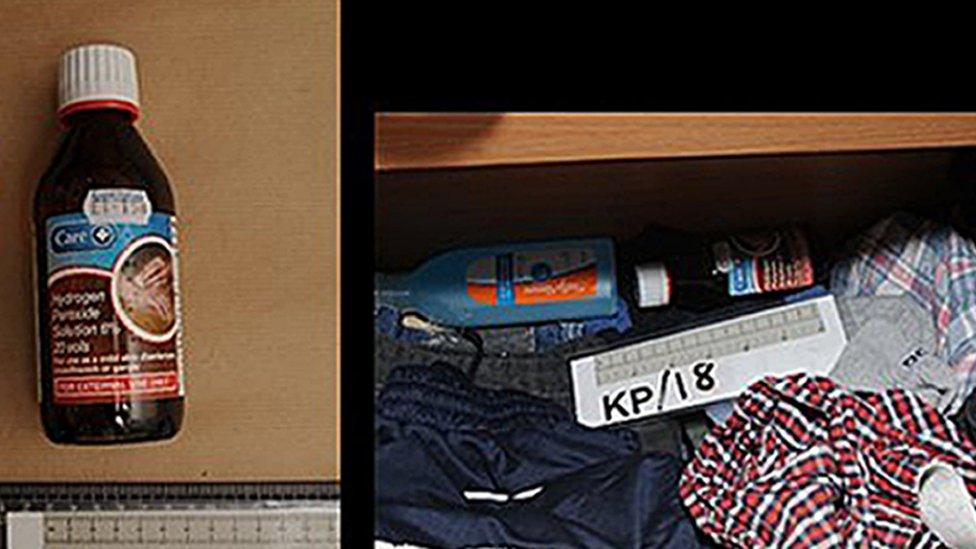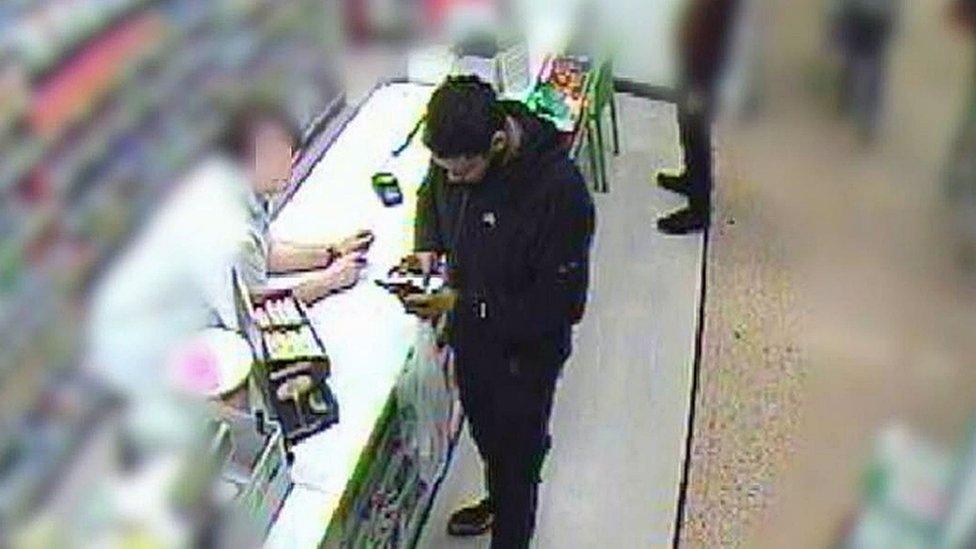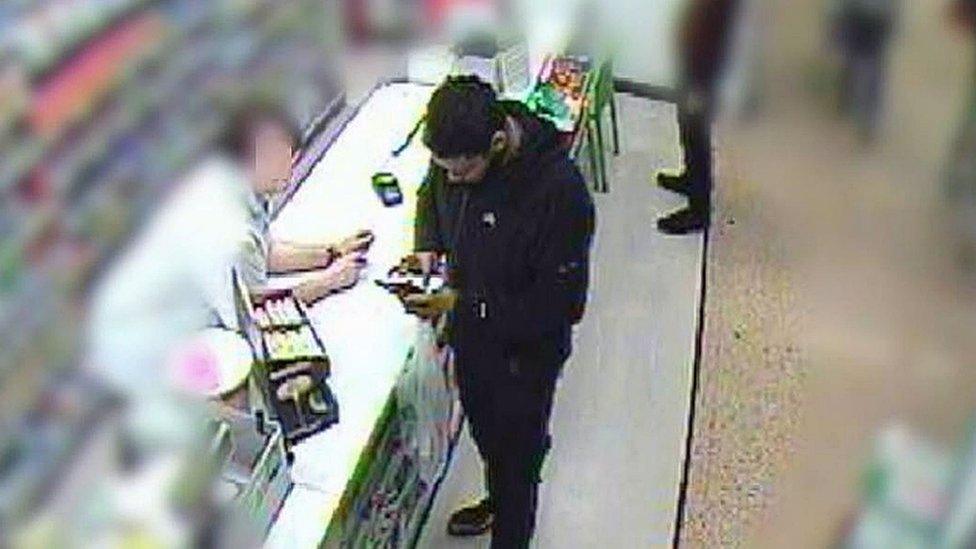Couple guilty of homemade bomb terror attack plot
- Published

Munir Mohammed and Rowaida El-Hassan met on an online dating site
A man and woman have been found guilty of plotting a "devastating" terror attack in the UK using a homemade bomb.
Food factory worker Munir Mohammed, 36, from Derby, and pharmacist Rowaida El-Hassan, 33, from north-west London, also exchanged messages about ricin.
The Old Bailey heard asylum seeker Mohammed signed up for a "new job in the UK", while messaging an IS commander via Facebook.
He used El-Hassan's chemical knowledge after they met on a dating website.
Updates on this story and more from the East Midlands
Sue Hemming, from the Crown Prosecution Service, said the couple were "clearly attracted to each other through their support for Daesh's [IS's] violent ideology and its intolerance of those who do not subscribe to its views".
"They planned to kill and injure innocent people in the UK and had the mind-set, the methodology and almost all the material needed for Mohammed to carry out an attack," she said.
"Both will be in prison, where they cannot plot together and will no longer be a danger to the public."

A bottle of hydrogen peroxide, which Mohammed believed was needed to make a bomb, was found in a wardrobe at his home
At the time of his arrest in December 2016, Mohammed had two of the three components needed for TATP explosives, as well as manuals on how to make explosives, mobile phone detonators as well as the deadly poison ricin.
The trial heard Mohammed, originally from Eritrea, who lived in Sudan for some time before coming to the UK, investigated making poison while working at a supermarket ready meals factory.
The court was also told that he was using sophisticated false documents to access services and work in the UK illegally.
Derby terror plot: The illegal worker and his lover
Judge Michael Topolski QC remanded the pair in custody and warned them they faced jail when they are sentenced on 22 February.

The pair both denied the charges, but a jury found them guilty of the plot
The judge told Mohammed: "You have been convicted of planning a potentially devastating terrorist attack by creating an explosive device and deploying it somewhere in the UK targeting those you regarded as enemies of the Islamic State.
"Rowaida El-Hassan, you share the extremist mindset with Munir Mohammed and you were ideologically motivated to provide him with support, motivation and assistance.
"You knew he was engaging and planning an attack. You knew he was planning an explosion to kill and maim innocent people in the cause of Islamic State."
Mohammed, of Leopold Street, Derby, was unanimously convicted of preparing terrorist acts between November 2015 and December 2016.
His co-accused El-Hassan, of Willesden Lane, north-west London, was convicted of the same charge by a majority of 10 to one jurors.

The court was shown footage of Mohammed visiting an Asda store near his home in Derby where he allegedly tried to buy ingredients for a homemade bomb

Jeremy Ball, Social Affairs Correspondent, BBC East Midlands
Munir Mohammed was trying to make a pressure-cooker bomb, like the device used at the Boston Marathon, detectives told me. They were also concerned that he posed a threat to the factory where he was making supermarket ready meals.
In his bedroom, the police found bomb-making instructions and two of the three chemicals needed for a high-explosive called TATP.
Derby's police commander, Ch Supt Jim Allen, said Derby was "clearly on the sharp end of a very serious plot that presented a very real risk to very many people".
"We don't know where his target was, but we have to be alarmed that he was so close to the centre of our city," he said.
"We arrested him within a few hundred metres of a large crowded shopping centre and we know that terrorists are attracted to that kind of location to do the most damage to create the most impact, and I can't rule that out."
Mohammed worked in Burton in Staffordshire in a job making sauces for ready meals sold in Tesco and Morrisons.
Counter-terrorism officers discovered that he had been researching and trying to source the poison ricin, and he had pledged allegiance to an IS commander, called Abubakr Kurdi, who called for poison attacks on food.

Det Ch Insp Paul Greenwood, who led the investigation, said officers did not believe Mohammed had selected a definite target by the time he was arrested but was awaiting orders from Islamic State.
The officer said Mohammed was "an extremely dangerous terrorist".
Mr Greenwood added: "Had he not been arrested when he was - which was on 12 December 2016, at a time when he'd already started to acquire chemicals, already started to look at pressure cookers, on the delivery mechanism for an attack and was already in conversation with Islamic States operatives - I think he was very close to mounting some sort of attack.
"And that could well have occurred before Christmas 2016 and I think that attack would have involved the loss of life and multiple injuries had Mohammed had his way."
- Published8 January 2018
- Published24 November 2017

- Published14 November 2017

- Published13 November 2017

- Published2 November 2017

- Published30 October 2017

- Published24 April 2017
